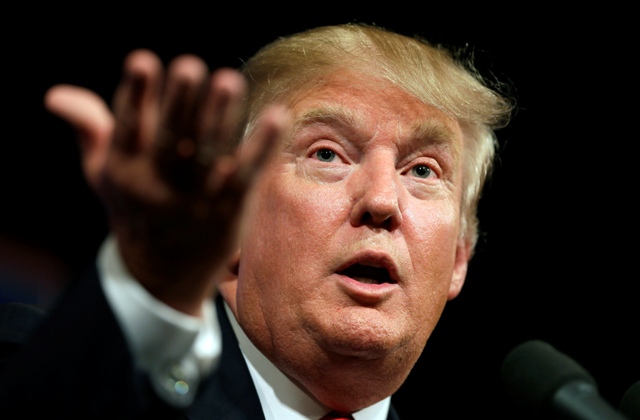The Trump administration announced it is extending the sanctions relief for Iran set forth in the nuclear deal, while imposing new penalties on Iranian and Chinese entities for supporting Iran’s ballistic missile program.
The Trump administration announced Wednesday it is extending the sanctions relief for Iran set forth in the nuclear deal signed with the Islamic Republic in 2015, despite President Donald Trump’s election campaign pledge to “dismantle” the agreement.
“The United States continues to waive sanctions as required to continue implementing US sanctions-lifting commitments in the Joint Comprehensive Plan of Action,” the State Department said.
Under the 2015 deal, the US and other world powers eased economic sanctions after the United Nations International Atomic Energy Agency (IAEA) confirmed that Iran took steps to pull its nuclear program back from the brink of weapons capability.
At the same time, the Trump administration imposed new penalties on Iranian and Chinese entities for supporting Iran’s ballistic missile program.
“The Treasury Department is imposing new sanctions on Iranian defense officials, an Iranian entity, and a China-based network that supplied missile-applicable items to a key Iranian defense entity,” the Treasury Department stated. “The action reflects concern with Iran’s continued development of ballistic missiles, which is in inconsistent with United Nations Security Council Resolution 2231.”
The new sanctions announced Wednesday hit Morteza Farasatpour, a top Iranian defense official who oversaw the sale of explosives and other materials used by Syria’s Scientific Studies and Research Center, the Treasury Department said. The Syrian agency produces unconventional weapons, such as the chemical weapons Assad’s forces used earlier this year.
The US also punished another Iranian official it said was involved in Iran’s ballistic missile program, as well as Matin Sanat Nik Andishan, a company based in Iran that the US said helped obtain materials for the ballistic missile program.
The sanctions also target a series of Chinese companies associated with Ruan Runling, a Chinese citizen. The US said his network helped produce electronics, such as missile guidance for Iran’s program.
Since taking office, Trump’s administration has sanctioned hundreds in Iran and in Syria as part of a campaign to increase pressure on Iran, even as it reviews the nuclear deal.
Still Forming a ‘Comprehensive Iran Policy’
While he was running for office Trump vowed to renegotiate or tear up the nuclear deal. As president he has altered his position, insisting he is still studying the accord and hasn’t made a final decision. The move to extend sanctions relief in the meantime is another indication Trump may be laying the groundwork to let the deal stand.
Stuart Jones, the top US diplomat in charge of the Middle East, said the US is still forming a “comprehensive Iran policy” that addresses Iran’s support for Syrian President Bashar Assad’s government and Islamic terror groups in Lebanon, Iraq, and Yemen.
“This ongoing review does not diminish the United States’ resolve to continue countering Iran’s destabilizing activity in the region, whether it be supporting the Assad regime, backing terrorist organizations like Hezbollah, or supporting violent militias that undermine governments in Iraq and Yemen,” Jones said. “And above all, the United States will never allow the regime in Iran to acquire nuclear weapons.”
Mark Dubowitz, an Iran expert and head of the Washington-based Foundation for Defense of Democracies, which advocates for a tough US position on Iran, said the latest steps were part of a “much more comprehensive strategy to use all instruments of American power to roll back Iranian regional aggression” and to “rectify what the administration sees as a deeply flawed nuclear deal.”
World Israel News staff and agencies


